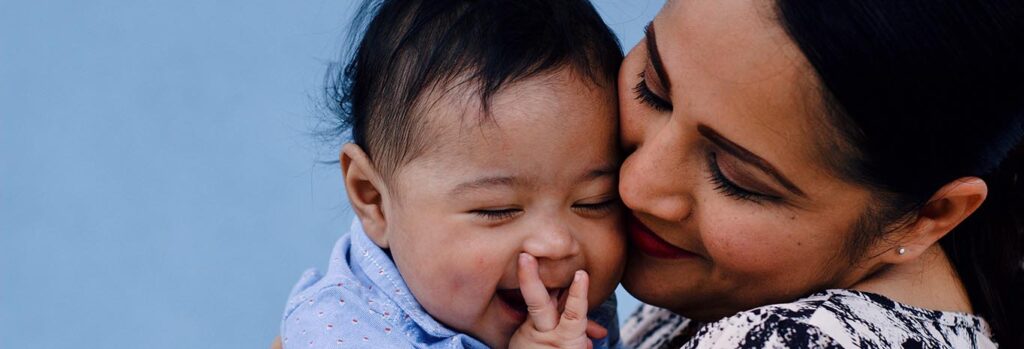Benefits Cliff
WFSA launched a benefits cliff dashboard intended for workers, service providers, and policymakers to locate and navigate benefits cliffs.

At the Women’s Foundation for the State of Arizona, research drives everything we do. Our nonpartisan research provides statewide data to inform public policy and philanthropy decisions. Every facet of our work is rooted in nonpartisan research and validated by a committee of women who have lived these experiences. We seek to identify the biggest economic barriers and opportunities for women and girls in Arizona so we can create innovative integrated solutions.
Gender inequity lies at the root of many problems facing women in Arizona. From inadequate opportunities for working mothers to health disparities, we contribute to a deeper understanding of what our communities need.
We recognize that knowledge, data, and awareness are vital in understanding how to address the needs of women and children. At WFSA, we partner with numerous organizations to conduct research that guides our work for gender equity.

WFSA launched a benefits cliff dashboard intended for workers, service providers, and policymakers to locate and navigate benefits cliffs.

The Self-Sufficiency Standard is a more realistic measure of income adequacy for Arizonans than the official poverty measure calculated by the federal government.

The Promising Careers for Self-Sufficiency report was created in partnership with the UA Community Research, Evaluation, & Development team to identify 28 promising careers whose median annual wage is $50,000+, require less than a 4-year degree, and is a growing occupation statewide.


“The Self-Sufficiency Standard for Arizona” provides a detailed county-by-county breakdown of the income families of 70 different configurations need to make ends meet in all 15 Arizona counties. It also documents the degree to which public supports, such as childcare assistance and KidsCare, enable families to meet their basic needs while moving towards self-sufficiency. The Self-Sufficiency Standard offers a more realistic measurement of the income needed to meet basic needs than the Federal Poverty Guidelines and is an excellent tool for policymakers, employers, and social agencies.
Even when working full time, single mothers are likely to be in or near poverty and need assistance to make ends meet for their families. Education is often a limiting factor; only 16 percent of single mothers have a four-year college degree. However, despite the low wages typically paid to Arizona workers with limited educational attainment, there are fields in which modest additional education or training can yield relatively big payoffs. In this brief, we identify 36 mid-skill high-wage fields as promising options for workers in Arizona looking for careers that enable self-sufficiency. The brief concludes with evidence-based suggestions on how to support women pursuing mid-skill, high earnings jobs, often in non-traditional fields.
Read the summary ‘Promising Careers for Self-Sufficiency’
This study quantifies the benefit of investing in two years of training or education for low-income single mothers coupled with childcare to impact family economic independence and generate cost-savings for the state. In The Relationship of Economic Independence and Access to Childcare for Single Moms, researchers from the Norton School of Family and Consumer Sciences at The University of Arizona identify three high-wage fields projected to grow at an above-average rate, with a substantial number of openings that only require two years of training or education. By investing in childcare as a part of workforce training, families can achieve economic independence and the state can save nearly $20,000 per year per family from parents who no longer need public assistance.

WFSA is regularly invited to participate and be in partnership with other leading research organizations serving women and girls on a national level. We lean on these partnerships and learning communities to gather best practices that guide our work and share our research with others around the country.
As part of the Whole Family Approaches to Economic Mobility Cohort that WFSA was part of for two years, we worked with others to collaborate as a learning community to share lessons learned and discuss strategies.
IWPR has gathered a new community of research and policy centers and WFSA has accepted their invitation to join. This new ecosystem is for organizations to collaborate and advocate for women’s social progress. IWPR plans to engage with centers on college campuses and in communities across the country, bringing together experts and leaders, commissioning new research, and highlighting stories of women and families. Membership to the Research & Action Hub includes access to member-only events, lectures, and symposia along with a collaborative network of research and policy centers. This is an opportunity for WFSA to network with like organizations, develop new research, and engage with the Hub community. The Hub also offers funding opportunities to launch new gender-related research.
Link: https://iwpr.org/research-and-action-hub/
The Gender Point is a powerful partnership between the Women’s Funding Network and the Institute for Women’s Policy Research. This first-of-its-kind initiative provides on-demand data reports that equip women’s funds and foundations with the research to leverage and enhance policy and funding priorities across the nation.
Link: https://genderpoint.org/